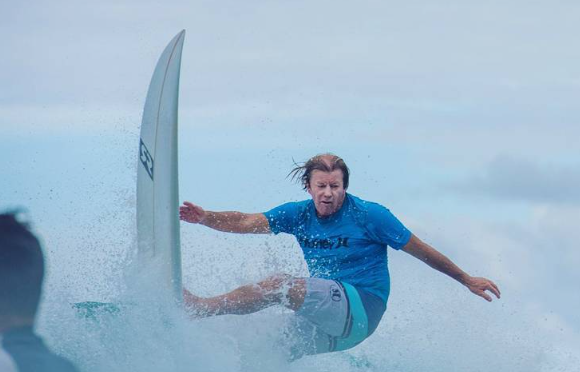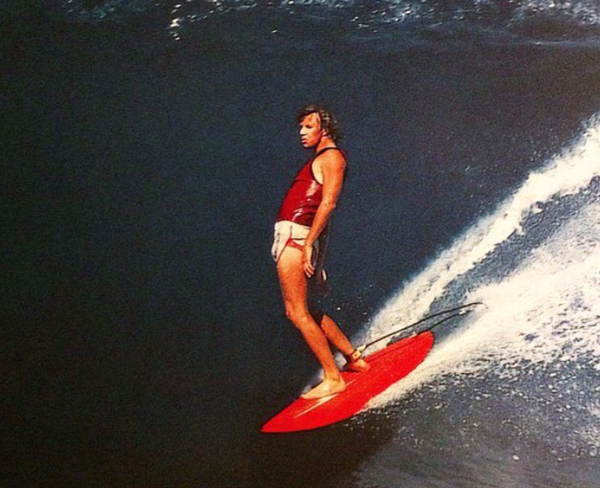

Wayne ‘Rabbit’ Bartholomew, the 1978 ASP World Surfing Champion, has seen the physical toll that years of dominating the waves can take. His long career, spent under the sun and facing harsh ocean conditions, has impacted his body. Now, he’s using his experiences to guide and inspire the next generation of surfers, showing them the realities of a life dedicated to the sport.
Watch What’s Trending Now!
Bartholomew’s lifelong love for surfing has come at a significant cost. While he managed to steer clear of major accidents throughout his career, the 69-year-old couldn’t entirely escape the wear and tear of nature’s elements. Reflecting on how his passion made his physical health vulnerable, Bartholomew now hopes to help others avoid the challenges he faced, using his story as a cautionary tale for rising surfers.
ADVERTISEMENT
Surfing star reflects on how his life can help to teach an important lesson
A recent article by the Illawarra Mercury from October 21, reveals how Wayne recalled how difficult things got at times as he pursued his love for surfing. “There was a couple of summers where I really got cooked. I remember waking up one morning when I was about 13 and my lips were stuck together, you know, because of all the sunburn and they’d scabbed up,” Bartholomew has been quoted in the article. He, however, noted that the general perception of how to tackle the effects of the sun has changed significantly from how things used to be during his days.

ADVERTISEMENT
Wayne confessed that being extensively exposed to the sun has made him a “major skin cancer candidate.” Remembering how surfing was the only thing that used to get kids out of bed in those days, the surfing icon said, “Back in the day you, you put a little bit of zinc on in the morning… surfers don’t just go out and have a swim for half an hour… you surf for five hours, six hours a day.”
ADVERTISEMENT
And now, after all these years, the prolonged hours spent in the sunlight have made melanoma a high possibility for Bartholomew. The Illawarra Mercury article also notes that the surfer “had had numerous precancerous growths, keratoses, and basal cell carcinomas,” before being diagnosed with melanoma. An irregular growth on his back drew the attention of his osteopath’s assistant. Luckily, the early diagnosis helped to start the healing process only that faster. In the documentary Conquering Skin Cancer, Bartholomew says all Australian surfers should get themselves checked regularly so that any erratic growth can be spotted. But his fate was sealed a long time ago.
Top Stories
Bengals’ Cam Taylor-Britt Sentenced to Jail: Everything We Know About Charges Against Him

Serious Allegations Emerge Against Former NCAA D3 Athlete Matthew Molinaro After Milford Crime

Bill Cowher’s Strong Message to Steelers on Firing Mike Tomlin After HC’s Blunt Playoff Message

Bill Belichick & Patriots Abandoned RB Battling Cancer, Then Forced to Join Dolphins

Jerry Jones Issues Statement After Firing Matt Eberflus as Cowboys Look for a New DC

Kirk Cousins Receives Concerning $45M News on Trade Away From Falcons After Raheem Morris’ Firing

Looking back, to help others
In an interview with Gold Coast Bulletin, Wayne Bartholomew said, “damage was done in my youth.” He also claimed that just because he got lucky with arguably the worst kind of skin cancer, doesn’t mean that everyone should have the same fortune. Instead, he confessed that he knew this was coming and even told his doctor about his thoughts when he was still a teen. “I was told by dermatologists when I was 17 that I was a major skin cancer candidate because of my surfing,” Bartholomew said. He also acknowledged that he didn’t pay heed to the dangers as a kid, but always was sure that the price had to be paid one day.
ADVERTISEMENT

ADVERTISEMENT
“When you’re a teenager you’re 10 foot tall and bulletproof and you don’t really listen. You’ve got this you beaut body, you’re out in the sun walking around with a good tan and looking beautiful, it doesn’t change generationally. The damage was done in my youth, and I knew it would catch up with me eventually,” the surfer said.
Now, Bartholomew has joined hands with the Melanoma Institute to raise funds “for Australia’s first clinical trial aimed to treat fear of cancer recurrence experienced by those with advanced disease.” Would you like to contribute too? Or learn more about how melanoma can be detected for better medical care? Share your thoughts below!
ADVERTISEMENT
ADVERTISEMENT
ADVERTISEMENT
ADVERTISEMENT

